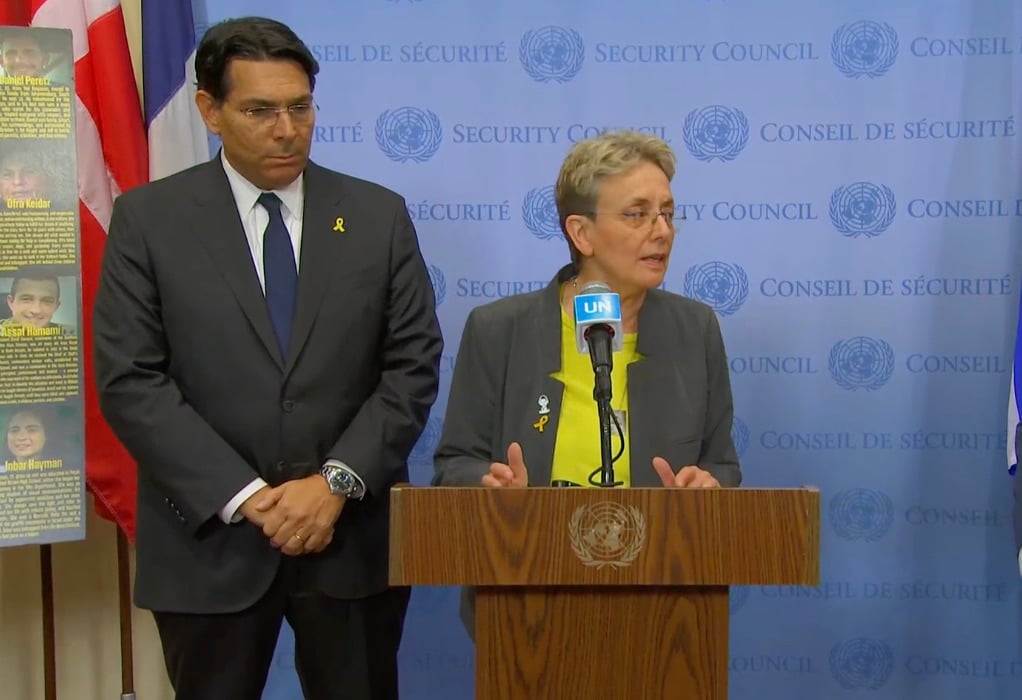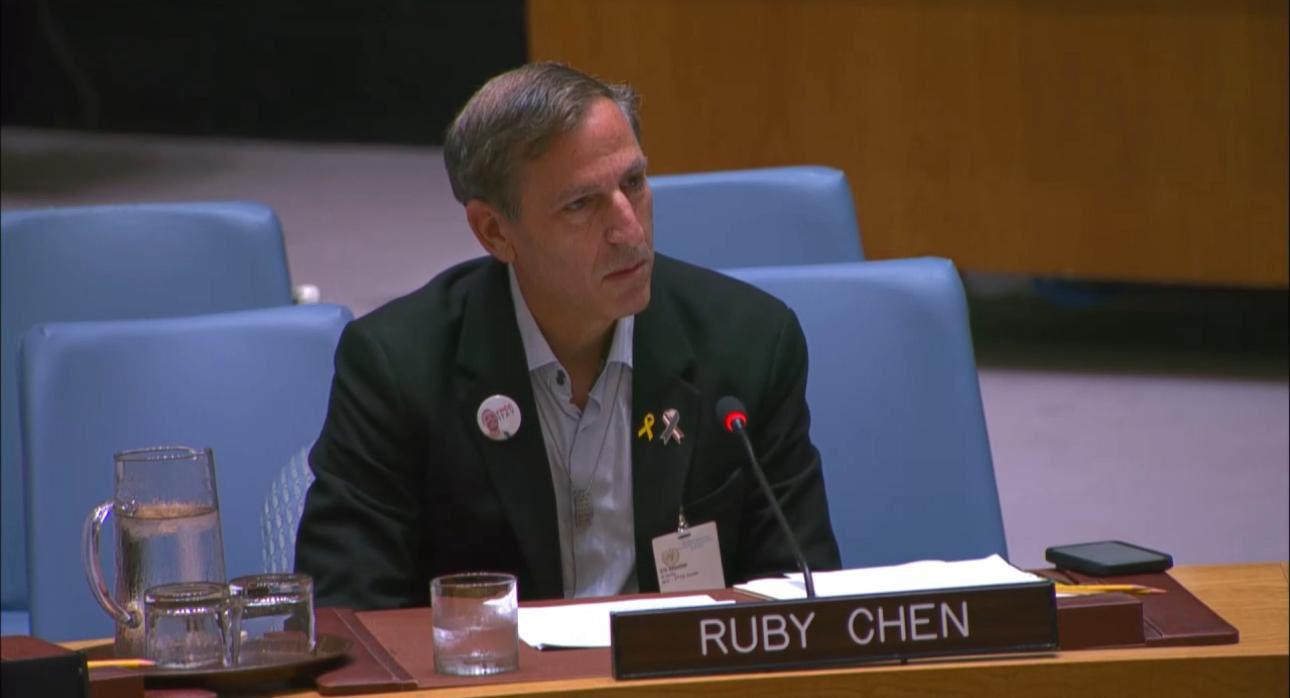



At a special United Nations Security Council session in New York, Israel’s UN envoy, accompanied by two parents of slain hostages held by Hamas terrorists, urged the council to uphold its commitment to ensure the return of missing persons in armed conflicts to their loved ones.
According to Ambassador Danny Danon’s office, the briefing marked the first-ever discussion by the council on the issue since the October 7, 2023, attack by the Hamas terror group, which is holding 58 hostages in Gaza, at least 35 of whom Israel believes are dead. There are grave concerns for the well-being of three others, Israeli officials have said.
At the opening of the session, Ruby Chen, father of slain American-Israeli hostage soldier Itay Chen, briefed the council’s ambassadors before Danon addressed his counterparts.
Chen urged the implementation of UN Resolution 2474, which was adopted unanimously by the council in 2019, and obligates parties in armed conflict and UN member states to ensure the return of missing persons or their remains in armed conflicts.
Chen explained that his son, an IDF soldier who holds US, German, and Israeli citizenship, was taken hostage by Hamas during the October 7 attack and declared dead in March 2024 based on intelligence gathered by the Israeli military.
However, Hamas has not been willing to acknowledge that Itay is in their possession or confirm that he is dead, he said.

“I think this is the lowest form of terrorist psychological warfare imaginable,” Chen told the Security Council, adding that his son’s “physical status, whatever it might be, does not make him any less of a hostage.”
He emphasized that Resolution 2474 obligates both state and non-state actors in an armed conflict to search for and account for the missing, and therefor the Hamas terror group, “by refusing to provide information or access to hostages, even to peace-making entities such as the International Committee of the Red Cross, are in clear violation of this resolution and of international law.”
Chen asserted that Resolution 2474 “must not remain symbolic. It must become enforceable,” and that it “gives the UN and members a legal, but even more so, a moral framework to condemn Hamas for its actions and to sanction its backers, such as Iran.”
He also asked the UN to establish a dedicated special envoy for hostage affairs, saying that without one, the international body “leaves families like ours without a vocal point, without guidance, and without adequate representation.”
Chen said that in light of the ongoing negotiations in Doha to reach a potential hostage-ceasefire deal in Gaza, “we also cannot allow a reality where there will be a new UN resolution declaring an end of violence in Gaza without the release of the last hostage.”
Later in the briefing, Danon told Council members that Resolution 2474 was adopted in order “to account for a missing person, to return the remains of the dead, to provide information, to allow families to grieve, and to recognize that these acts are not gifts.”

“Hamas has violated every letter of that resolution, repeatedly and openly. Where is the response? Where is the demand for compliance? Where the basic moral outrage?” he asked them.
Danon called on UN Secretary General Antonio Guterres “to fulfill his mandate under Resolution 2474 by including a dedicated section in his next report on the protection of civilians.”
“That section must document the full extent of this ongoing atrocity. Every hostage still held by Hamas, every stolen body, every Israeli missing since October 7, and every fallen soldier whose remains have yet to be returned from past wars,” he said.
“We will not forget our dead. We will not leave them behind. We will not allow Hamas to turn memory into a weapon. That is our duty, and it will be fulfilled,” the ambassador concluded.
Ahead of the session, the mother of Lt. Hadar Goldin, who was killed and captured by Hamas during a ceasefire with Israel on August 1, 2014, delivered a press briefing alongside Danon at the Security Council, similarly urging council members to uphold their commitment to returning missing persons.
Accompanied by her son, Menachem Goldin, she began by noting that Hadar was killed during a UN and US-brokered 72-hour truce.

“For nearly 11 years, my son’s body has been held in Gaza by a terrorist organization that exploits humanitarian frameworks for political gain, and for nearly 11 years, the international community has looked away,” she said.
“The words of the [Resolution 2474] were powerful,” Goldin said, “but words alone do not bring our children home.”
“In the years since its adoption, Resolution 2474 has been forgotten, its principles ignored, its enforcement non-existent,” she said, pointing out that the very organization that brokered the ceasefire under which Hadar was taken has yet to uphold its own responsibility.
She urged the UN to “enforce Resolution 2474, not selectively, not symbolically, but seriously. Demand the return of the missing. Demand accountability. Demand the dignity that every human being deserves in life and in death.”
